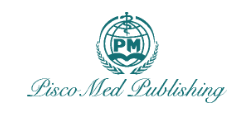The impact of organizational strategic trends on individual-based resilience with a digital transformation perspective
Abstract
Keywords
Full Text:
PDFReferences
Oğan E, Wolff RA. The mediating role of digital culture in the digital transformation performance of fortune 500 enterprises (Turkish). Fiscaoeconomia 2022; 6(3): 1282–1307. doi: 10.25295/fsecon.1114853
Altuntaş EY. The effect of digital transformation practices on the brand value of institutions (Turkish). Egemia Dergisi 2018; 2(1): 1–18.
Nuroğlu E, Nuroğlu HH. Digital transformation of Türkiye and Germany in industry: Roadmaps and comparison of companies (Turkish). İktisadi ve İdari Bilimler Fakültesi Dergisi 2018; 23: 1537–1560.
Savaş S, Güler O, Kaya K, et al. Digital games in education and learning with play (Turkish). International Journal of Active Learning 2021; 6(2): 117–140.
Lengnick-Hall CA, Beck TE, Lengnick-Hall ML. Developing a capacity for organizational resilience through strategic human resource management. Human Resource Management Review 2011; 21(3): 243–255. doi: 10.1016/j.hrmr.2010.07.001
Çalışkan A, Pekkan NÜ. The mediating role of organizational support in the effect of psychological capital on work alienation (Turkish). İş ve İnsan Dergisi 2017; 4(1): 17–33. doi: 10.18394/iid.303183
Luthans F, Avey JB, Avolio BJ, Peterson SJ. The development and resulting performance impact of positive psychological capital. Human Resource Development Quarterly 2010; 21(1): 41–67. doi: 10.1002/hrdq.20034
Bulut Ç, Alpkan L, Yilmaz C. The relationship between strategic orientations and firm performance: A conceptual study on literature development (Turkish). Dokuz Eylül Üniversitesi İşletme Fakültesi Dergisi 2009; 10(1): 1–34.
Hakala H. Strategic orientations in management literature: Three approaches to understanding the interaction between market, technology, entrepreneurial and learning orientations. International Journal of Management Reviews 2011; 13(2): 199–217. doi: 10.1111/j.1468-2370.2010.00292.x
Contreras F, Baykal E. Effect of the firm’s absorptive capacity on the work engagement of white-collar employees in Istanbul. In: Strategic Outlook in Business and Finance Innovation: Multidimensional Policies for Emerging Economies. Emerald Publishing Limited; 2021. pp. 59–71.
AL-Khatib AW, Shuhaiber A. Green intellectual capital and green supply chain performance: Does big data analytics capabilities matter? Sustainability 2022; 14(16): 10054. doi: 10.3390/su141610054
Polat I, Mutlu HM. Strategic orientation and firm performance: An empirical study on free zone firms (Turkish). Paradoks Ekonomi Sosyoloji ve Politika Dergisi 2013; 9(1), 5–26.
Yorulmaz H, Baykal E, Serkan E. Effects of teleworking and strategic orientations on resilience in the post-pandemic period. OPUS Journal of Society Research 2023; 20(51): 30–42. doi: 10.26466/opusjsr.1207071
Güler M, Budak S, Nari̇n İ. An empirical study to determine the strategic orientation levels of professional accountants (Turkish). Kapanaltı Muhasebe Finans Ekonomi Dergisi 2022; 1(1): 10–18.
Yilmaz K, Karakaya A. Relationships between strategic orientations of businesses and effective business continuity management: Istanbul chamber of industry (ISO) 2015 research on top 500 industrial enterprises (Turkish). İnsan ve Toplum Bilimleri Araştırmaları Dergisi 2019; 8(4): 3230–3251. doi: 10.15869/itobiad.631142
Baykal E. Innovative organizational climate: Its impact on work engagement (Turkish). Ekonomi İşletme ve Maliye Araştırmaları Dergisi 2019; 1(3): 266–279. doi: 10.38009/ekimad.612630
Noble CH, Sinha RK, Kumar A. Market orientation and alternative strategic orientations: A longitudinal assessment of performance implications. Journal of Marketing 2002; 66(4): 25–39. doi: 10.1509/jmkg.66.4.25.18513
Halaç DS. Technology orientation: A reassessment and a future research agenda. Istanbul Management Journal 2019; 86: 25–55. doi: 10.26650/imj.2019.86.0002
Baykal E. Boosting innovative work behavior in organizations through absorptive capacity. Journal of Organizational Behavior Review 2019; 1(1): 16–33.
Bulut Ç, Arbak H. Innovation, Resilience and Communication: A Conceptual Discussion (Turkish). EGİAD Yayınları; 2012. pp. 5–9.
Wei J, Zhao Y. Strategic orientation and innovation ecosystem structure. In: Proceedings of the 2019 IEEE International Symposium on Innovation and Entrepreneurship (TEMS-ISIE); 24–26 October 2019; Hangzhou, China. pp. 1–8.
Rajala R, Westerlund M. The effects of service orientation, technology orientation and open innovation on the performance of software-intensive service businesses. In: Proceedings of the 2012 45th Hawaii International Conference on System Sciences; 4–7 January 2012; Maui, HI, USA. pp. 1532–1541.
Akin E. Customer focus and relational marketing orientation in manufacturing SMEs (Turkish). Business & Management Studies: An International Journal 2019; 7(5): 2742–2769. doi: 10.15295/bmij.v7i5.1332
Kalmuk G. The Mediating Role of Organizational Learning Ability in the Effect of Strategic Orientations and Innovation on Hospital Performance. Sosyal Bilimler Enstitüsü; 2016.
Soysal AN, Koçoğlu D. The relationship between customer-focused marketing approach and service quality perception in healthcare businesses: A hospital example (Turkish). Selçuk Üniversitesi Sosyal Bilimler Meslek Yüksekokulu Dergisi 2018; 21(1): 41–50. doi: 10.29249/selcuksbmyd.349338
Baş A, Şenbabaoğlu E, Dölarslan EŞ. The effect of the customer orientation and customer satisfaction levels of the enterprises on the formation of trust: An evaluation in the customer dimension (Turkish). Ankara Üniversitesi SBF Dergisi 2016; 71(4): 1267–1289. doi: 10.1501/SBFder_0000002431
Keskin H, Zehir S, Ayar H. Relationship between market orientation and firm performance: the mediating role of differentiation strategy (Turkish). Doğuş Üniversitesi Dergisi 2016; 17(1): 111-127.
Doğan B, Albeni̇ M. A study on the determinants of firm-level innovation in the Turkish manufacturing industry (Turkish). Süleyman Demirel Üniversitesi İktisadi ve İdari Bilimler Fakültesi Dergisi 2015; 20(2): 287–298.
Ayhün SE, Külcü MF. The relationship between market orientation, brand management capabilities and organizational performance: A field study in the automotive industry (Turkish). Karabük Üniversitesi Sosyal Bilimler Enstitüsü Dergisi 2019; 8(2): 270–287. doi: 10.14230/joiss522
Şahi̇n A, Ayteki̇n M. The effect of market orientation on business performance: A study on participation banks operating in Turkey (Turkish). Uluslararası İktisadi ve İdari İncelemeler Dergisi 2019; 22: 17–38. doi: 10.18092/ulikidince.394470
ILO. Teleworking during The COVID-19 Pandemic and Beyond: A Practical Guide (Turkish). United Nations Digital Library; 2020.
Matt C, Hess T, Benlian A. Digital transformation strategies. Business & Information Systems Engineering 2015; 57: 339–343. doi: 10.1007/s12599-015-0401-5
Selander L, Henfridsson O, Svahn F. Transforming ecosystem relationships in digital innovation. In: Proceedings of the International Conference of Information Systems 2010; St. Louis, MN.
Carlo JL, Lyytinen K, Boland RJ. Dialectics of collective minding: Contradictory appropriations of information technology in a high-risk project. MIS Quarterly 2012; 36(4): 1081–1108. doi: 10.2307/41703499
Karimi J, Walter Z. The role of dynamic capabilities in responding to digital disruption: A factor-based study of the newspaper industry. Journal of Management Information Systems 2015; 32(1): 39–81. doi: 10.1080/07421222.2015.1029380
Sheldon KM, King L. Why positive psychology is necessary. American Psychologist 2001; 56(3): 216–217. doi: 10.1037/0003-066X.56.3.216
Seligman MEP, Csikszentmihalyi M. Positive psychology: An introduction. American Psychologist 2000; 55(1): 5–14. doi: 10.1037/0003-066X.55.1.5
Baykal E, Zehir C. Perceived organizational support, servant leadership and psychological capacity relationship. In: Proceedings of the 14th International Strategic Management Conference & 8th International Conference on Leadership, Technology, Innovation and Business Management (Joint Conference ISMC & ICLTIBM 2018); 12–14 July 2018; Prague, Czechia. pp. 739–753.
Baykal E. Boosting resilience through spiritual well-being: COVID-19 example. Bussecon Review of Social Sciences (2687-2285) 2020; 2(4): 18–25. doi: 10.36096/brss.v2i4.224
Ryff CD, Singer B. Flourishing under fire: Resilience as a prototype of challenged thriving. In: Keyes CLM, Haiat J (editors). Flourishing: Positive Psychology and the Life Well-Lived. American Psychological Association; 2003. pp. 15–36.
Fredrickson BL. The role of positive emotions in positive psychology. The American Psychologist 2001; 56(3): 218–226. doi: 10.1037/0003-066X.56.3.218
Karacaoğlu K, Köktaş G. The mediator role of optimism in the relationship between resilience and psychological well-being: A study on hospital staff (Turkish). İş ve İnsan Dergisi 2016; 3(2): 119–127. doi: 10.18394/iid.20391
Basim HN, Çeti̇n F, Yeloğlu HO. The role of five factor personality traits in explaining resilience: A canonical relationship analysis (Turkish). Türk Psikoloji Dergisi 2015; 30(75): 81–95.
Gurbanli E, Taşliyan M. The effect of human resources management practices on resilience and organizational alienation: (A field study in hotel management) (Turkish). İktisat İşletme ve Uluslararası İlişkiler Dergisi 2022; 1(1): 39–67.
Mannen D, Hinton S, Kuijper T, Porter T. Sustainable organizing: A multiparadigm perspective of organizational development and permaculture gardening. Journal of Leadership & Organizational Studies 2012; 19(3): 355–368. doi: 10.1177/1548051812442967
Budak G. The Effect of Psychological Resilience and Organizational Justice Perception on Organizational Citizenship Behavior (Turkish) [Master’s thesis]. Başkent Üniversitesi Sosyal Bilimler Enstitüsü; 2015.
Luthans F, Vogelgesang GR, Lester PB. Developing the psychological capital of resiliency. Human Resource Development Review 2006; 5(1): 25–44. doi: 10.1177/1534484305285335
Smith BW, Tooley EM, Christopher PJ, Kay VS. Resilience as the ability to bounce back from stress: A neglected personal resource? The Journal of Positive Psychology 2010; 5(3): 166–176. doi: 10.1080/17439760.2010.482186
Youssef CM, Luthans F. Positive organizational behavior in the workplace: The impact of hope, optimism, and resilience. Journal of Management 2007; 33(5): 774–800. doi: 10.1177/0149206307305562
Luthans F, Church AH. Positive organizational behavior: Developing and managing psychological strengths [and executive commentary]. The Academy of Management Executive (1993–2005) 2002; 16(1): 57–75. doi: 10.59400/fls.v5i2.1626
Maddi SR. On hardiness and other pathways to resilience. The American Psychologist 2005; 60(3): 261–262. doi: 10.1037/0003-066X.60.3.261
Mandal S, Saravanan D. Exploring the influence of strategic orientations on tourism supply chain agility and resilience: An empirical investigation. Tourism Planning & Development 2019; 16(6): 612–636. doi: 10.1080/21568316.2018.1561506
Ardelean BO. Role of technological knowledge and entrepreneurial orientation on entrepreneurial success: A mediating role of psychological capital. Frontiers in Psychology 2021; 12: 814733. doi: 10.3389/fpsyg.2021.814733
Erdem H. The Effects of Perceived Organizational Support and Locus of Control on Methods of Coping with Stress: The Role of Psychological Capital in this Process and a Field Study (Turkish) [PhD thesis]. İnönü Üniversitesi Sosyal Bilimler Enstitüsü; 2014.
White RL, Bennie A. Resilience in youth sport: A qualitative investigation of gymnastics coach and athlete perceptions. International Journal of Sports Science & Coaching 2015; 10(2–3): 379–393. doi: 10.1260/1747-9541.10.2-3.379
Hartini Y, Husnan LH, Athar HS. The effect of market orientation and the adoption of technology for Msme resilience in self-efficacy as moderating variable during the COVID-19 pandemic in east Lombok regency. International Journal of Multicultural and Multireligious Understanding 2022; 9(10): 403–413. doi: 10.18415/ijmmu.v9i10.4004
Sommovigo V, Setti I, O’Shea D, Argentero P. Investigating employees’ emotional and cognitive reactions to customer mistreatment: An experimental study. European Journal of Work and Organizational Psychology 2020; 29(5): 707–727. doi: 10.1080/1359432X.2020.1745189
Friend SB, Johnson JS, Luthans F, Sohi R. Positive psychology in sales: Integrating psychological capital. Journal of Marketing Theory and Practice 2016; 24(3): 306–327. doi: 10.1080/10696679.2016.1170525
Junça-Silva A, Lopes RR. Unfriendly customer behaviors and employees’ psychological capital: The role of health symptoms and positive humor events. Current Psychology 2023; 42: 16381–16391. doi: 10.1007/s12144-020-01163-8
Park HY. Positive psychological capital, job intensity, customer orientation and trust in O2O distribution market. Journal of Distribution Science 2021; 19(6): 5–19.
Hair JF, Black WC, Babin BJ, Anderson RE. Multivariate Data Analysis. Pearson Education Limited; 2013.
Akçay VH. Psychological capital scale adaptation: Validity and reliability study (Turkish). Üçüncü Sektör Sosyal Ekonomi 2014; 49(2): 72–84.
Zhou KZ, Yim CK, Tse DK. The effects of strategic orientations on technology- and market-based breakthrough innovations. Journal of Marketing 2005; 69(2): 42–60. doi: 10.1509/jmkg.69.2.42.60756
Narver JC, Slater SF. The effect of a market orientation on business profitability. Journal of Marketing 1990; 54(4): 20–35. doi: 10.1177/002224299005400403
Hult GTM, Ketchen DJ, Reus TH. Organizational learning capacity and internal customer orientation within strategic sourcing units. Journal of Quality Management 2001; 6(2): 173–192. doi: 10.1016/S1084-8568(01)00036-0
Calantone RJ, Cavusgil ST, Zhao Y. Learning orientation, firm innovation capability, and firm performance. Industrial Marketing Management 2002; 31(6): 515–524. doi: 10.1016/S0019-8501(01)00203-6
Taşpınar M. SSPS Applied Quantitative Data Analysis in Social Sciences (Turkish). Pegem Akademi Yayıncılık; 2017.
Henseler J, Ringle CM, Sinkovics RR. The use of partial least squares path modeling in international marketing. In: Sinkovics RR, Ghauri PN (editors). New Challenges to International Marketing. Emerald Group Publishing Limited; 2009. Volume 20. pp. 277–319.
Esendemirli E, Turker D, Altuntas C. An analysis of interdepartmental relations in enterprise resource planning implementation: A social capital perspective. International Journal of Enterprise Information Systems (IJEIS) 2015; 11(3): 27–51. doi: 10.4018/IJEIS.2015070103
Taylor C, Dollard MF, Clark A, et al. Psychosocial safety climate as a factor in organisational resilience: Implications for worker psychological health, resilience, and engagement. In: Dollard M, Dormann C, Awang Idris M (editors). Psychosocial Safety Climate: A New Work Stress Theory. Springer International Publishing; 2019. pp. 199–228.
DOI: https://doi.org/10.18282/hrms.v5i1.3359
Refbacks
- There are currently no refbacks.



